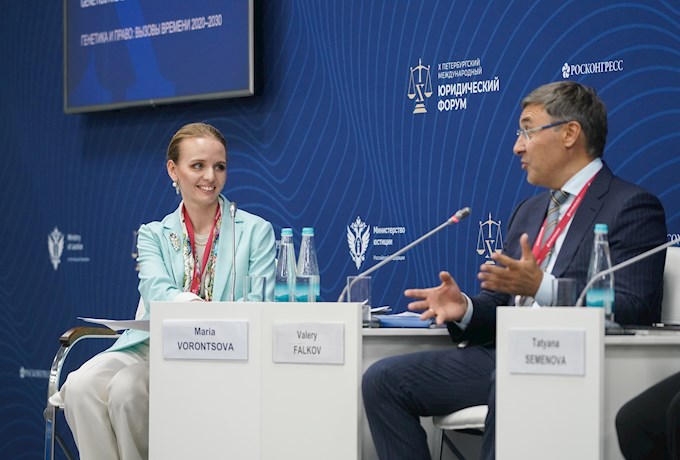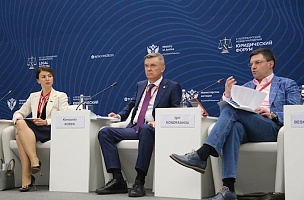Key conclusions
Russia needs a federal law on bioresource collection
“Our main goal is to develop at least one fundamental federal law on bioresource collections. As always, it needs to be aligned with the existing regulations, including the Law on Biological Security, on Wildlife Protection, a whole number of laws on agriculture, medicine, etc., as well as a series of statutory acts,” Valery Falkov, Minister of Science and Higher Education of the Russian Federation.
“We absolutely obviously need overarching legislation. That would be the right decision and a long-overdue one. <…> Today, it is the foundation for taking the next step and setting the cornerstone notions in a special law… on bioresource collections. Then we can develop other laws or statutory acts that would address those special features that are required for applied research. We absolutely support it,” Tatiana Semyonova, Deputy Minister of Health of the Russian Federation.
“Of course, we are trying to introduce best practices into our centre’s operations. However, the existing lack of legal clarity may be an obstacle for sustainable development of genetic technologies not just at our centre, but in our country in general. Rosneft salutes the legislative initiatives that were mentioned today,” Alexander Pashali, Director of the Department of Scientific and Technical Development and Innovations, Rosneft.
PROBLEMS
No harmony in the legislation’s definitions
“If we look at our legislation and the general notion of bioresource collection, we have two definitions, and both of them are private. The Federal Law on Wildlife Protection adopted back in 1995 contains a definition of zoological collection. The Federal Law on Biological Security on the Russian Federation adopted in late 2020 defines collection of pathogen microorganisms and viruses, which is about 10% of total bioresource collections,” Valery Falkov, Minister of Science and Higher Education of the Russian Federation.
“Of course, human genome is a whole separate category of personal data, and it should be regulated in accordance with the law on personal data. However, the law does not specify the status of genetic data. There are no clear and precise definitions either, which makes it difficult to organize our activity,” Alexander Pashali, Director of the Department of Scientific and Technical Development and Innovations, Rosneft.
The database information needs to be verified
“The comparative analysis uses genome data of multiple – up to dozens of thousands – organisms. This analysis is only possible with centralized storage and modern technologies of artificial intelligence and machine learning,” Valery Falkov, Minister of Science and Higher Education of the Russian Federation.
“We plan to get a unique reference base that will contain about 800 thousand entries on genotypes and phenotypes of our animals and animals of other players in our industry. Annually we plan to add roughly 120 thousand new entries. These are massive bodies of data. The most important thing that is planned is to validate the data for these databases. This is why we should have multi-stage verification of the information for databases,” Nikolai Elatkin. Head of the Laboratory of Genetics, ABH Miratorg.
“Presently, there are international databases. <…> Kurchatov Institute was assigned with creating a national database. It was driven by the fact that the results of our activity, as well as digital copies of our collections are to this day either stored separately on local servers or are uploaded foreign databases, which poses a threat to national security. On the other hand, it prevents us from consolidating our experience and getting to a different level. This is why, Russia is creating a national database of genetic information in a similar way to other countries,” Julia Dyakova, First Deputy Director for Science, National Research Center “Kurchatov Institute”.
SOLUTIONS
Stocktaking of all bioresource collections
“Before we regulate something, we need to understand what we are regulating. This is why we initiated a major stocktaking. <…> Eventually, we hope to complete this stocktaking. <…> Stocktaking should probably go beyond one federal authority. We need to look through a broader lens,” Valery Falkov, Minister of Science and Higher Education of the Russian Federation.
“Our primary task in terms of studying is to focus on breakthrough projects without splitting hairs. <…> We need to start with stocktaking and creating a national catalogue of the most precious items,” Elena Khlestkina, Deputy Director, Vavilov All-Russian Institute of Plant Genetic Resources Federal Research Centre.
For more information, visit the Roscongress Foundation’s Information and Analytical System roscongress.org.






